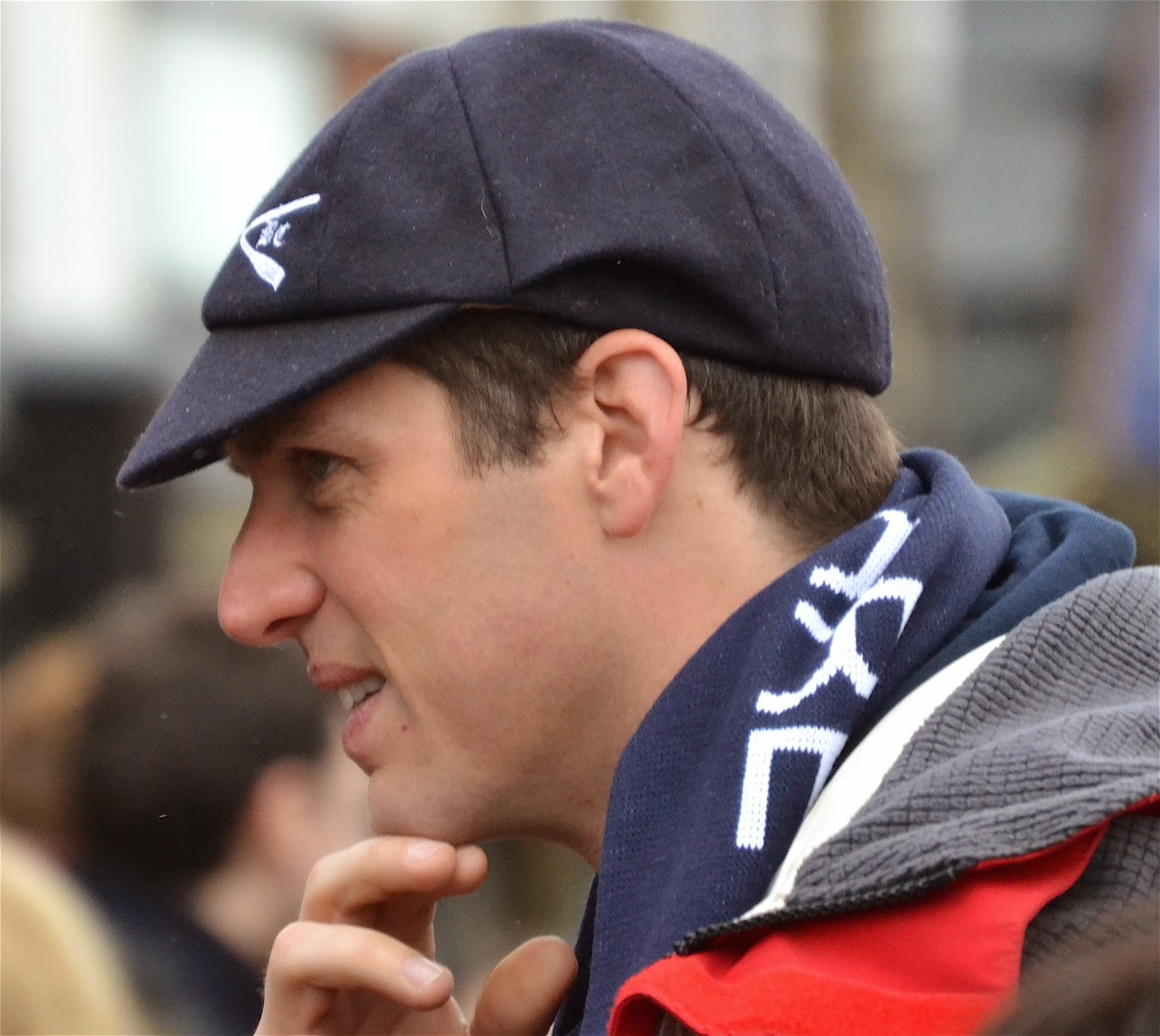Tim Koch writes:
Other reports on the 2014 Boat Race were rather conventional in that they all came out within hours of the event. Here at HTBS, we like to be different and so have waited several days before putting our take on the day online (nothing to do with me starting a new job). Part 2 will show the race, pictured from my very privileged position in the photographers’ launch.
Putney Embankment, 14.00 (2 p.m.), four hours before the 18.00 (6 p.m.) start. The Putney ‘Hard’ is fenced off to the public.
‘National Treasure’, BBC presenter Claire Balding, manages to get slight smiles out of the normally recalcitrant coaches, Steve Trapmore of Cambridge...
...and Sean Bowden of Oxford.
Oxford’s balcony scene at 15.45 (3:45 p.m.), two and a quarter hours to go.
A young Old Blue (Dark).
Two Old Blues (Light).
Six future Old Blues? Girls from London Youth Rowing sell home made cakes to raise money for new equipment.
The coin toss for stations. Umpire Richard Phelps holds the gold sovereign minted in 1829 (the year of the first race), which was presented to the Boat Race by the late John Snagge.
OUBC President Malcolm Howard flips the coin, CUBC President Steve Dudek calls.
17.05 (5:05 p.m.), Oxford takes to the water.
The Oxford bow man Storm Uru in a reflective mood. The first New Zealand Maori to row in a Boat Race, it is also unusual to find a sculler and a lightweight in the event.
Oxford ‘2’ man Tom Watson, one of many Boat Race oarsman that have originated out of the University of Victoria, British Columbia.
17.14 (5:14 p.m.): The final words of wisdom from coach Bowden are absorbed by cox Harvey and stroke Louloudis. I presume that the reflective band around the cox’s wrist is so that, if he raises his hand on the start to indicate that he is not ready, the umpire will not miss it. While this may not actually be necessary, it is a great attention to detail.
17.15 (5:15 p.m.): Oxford leave for their warm up.
17.15 (5:15 p.m.): Cambridge leave for their warm up.
The view from the photographers’ launch. Leaving the crowds on the Embankment. Old hands said that it was better before the television helicopter hovered noisily overhead when the only noise was the excited murmur of the crowd.
Going through Putney Bridge, away from the start, to await the crews going onto the stake boats.
Ten minutes before the race. Having completed their warm ups, the crews wait downriver, alone with their thoughts.
Six minutes to go. Bowden’s boys pass him on the way to the start.
Cambridge on the stake boat. Only President Dudek (4) finds humour in the situation.
17.57 (5:57 p.m.): On the start. The culmination of 1,200 hours of training. One chance. No second place.
Photography © Tim Koch
Coming up next – ‘Images of the 160th Boat Race Part 2: The Race’.








































